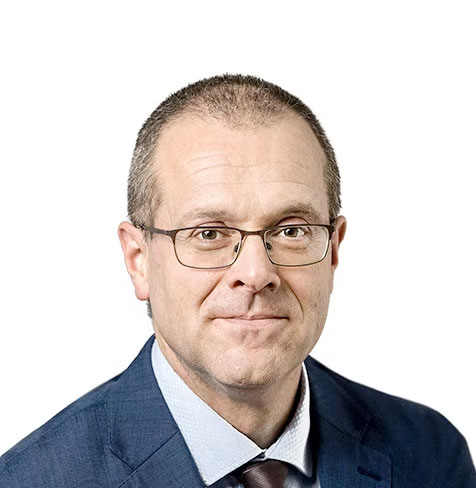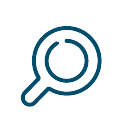Der gebürtige Belgier
Dr. Hans Henri P. Kluge
ist Regionaldirektor
der WHO/Europa.

27. Juni 2025
In der Print-Ausgabe der MISERICORDIA finden Sie eine übersetzte und gekürzte Version, den kompletten Text im Original können Sie hier lesen.
Rebuilding Trust,
protecting Lives
The Role of Health Workers
in a Changing World
Dr. Hans Henri P. Kluge, Regionaldirektor der WHO/Europa
Five years ago, the COVID-19 pandemic began spreading globally, just as I began my role as Regional Director of WHO/Europe. Today, as we reflect on those years, the verdict is clear: no health system in our region has fully recovered, and none are adequately prepared for the immense challenges looming ahead. This reflection takes on added urgency as I begin my second term as Regional Director amidst another crisis: the United States of America’s decision to withdraw from WHO.
This decision reverberates far beyond WHO itself, affecting the very fabric of global health cooperation. At a time when powerful megatrends such as climate change, aging populations, rising chronic diseases, and rapid technological shifts are reshaping health and well-being, this disruption to multilateralism leaves us particularly vulnerable. Yet, within these challenges lie opportunities we can seize, if we work together with resolve and unity.
History serves as our guide, showing us that unity has always been our strongest tool for overcoming crises. Multilateralism, therefore, is not just a choice – it is a necessity. No single country, institution, or leader can address the many issues we face, alone.
As we strive for unity, we must recognize the intrinsic link between health and peace. Armed conflict in Ukraine continues to devastate lives and strain health systems on a massive scale. However, peace, while crucial, is not the sole pillar of health security. Emerging threats, from antimicrobial resistance to the resurgence of vaccine-preventable diseases like measles, remind us that vigilance is vital. Similarly, the health consequences of climate change underscore the urgent need for collective action to safeguard our futures.
This urgency demands action on three key fronts. First, healthcare must be protected from targeted attacks; international humanitarian law must be upheld by all nations. Second, early detection and response systems, coupled with global cooperation, are indispensable for mitigating diseases before they escalate. Finally, in an era when multilateralism appears fragile, we must rally around the ideals of global solidarity. The COVID-19 pandemic demonstrated the power of unity; we must harness the same spirit to ensure equitable vaccine distribution and universal access to essential health services.
In the European Region, demographic shifts are adding complexity to our health challenges. For the first time in recorded history, Europe’s older population surpasses its youth. By 2050, the proportion of those over 65 will double, and those over 80 will triple. Yet, aging need not be seen as a burden. Instead, it presents an opportunity to foster healthier, more inclusive societies. To navigate this demographic transformation, we must prioritize healthy aging from childhood through old age, establish age-friendly health systems, and encourage intergenerational connections to counter loneliness and isolation. Aging, after all, is living.
Parallel to this demographic reality, the prevalence of violence against women and girls demands our attention. Globally, one in three women experiences physical and/or sexual violence in their lifetime; in the European Region, the figure is one in four. This is more than a health crisis – it is a violation of human rights. Health workers often serve as the first line of contact for survivors, making their role critical. With proper training, they can offer compassionate support and ensure survivors have access to safe reporting mechanisms.
Building trust is another cornerstone of progress. We are facing one of the lowest points of public trust in science, health institutions, and vaccines in modern history. Misinformation and disinformation threaten not only health systems but also the effectiveness of public health measures. Yet, amidst these challenges, health workers – especially nurses – remain among the most trusted professions. This presents a powerful opportunity for health workers to rebuild public trust and disseminate accurate, science-based information before misinformation gains traction.
Ultimately, no matter your faith or beliefs, health and care workers embody humanity’s collective mission to safeguard life and promote peace. In your daily actions, you contribute to the stability and security of our societies—work that reflects both resilience and compassion.
As the scripture aptly states:
"Nevertheless, I will bring health and healing to it; I will heal my people and will let them enjoy abundant peace and security."
Jeremiah 33:6.

Dr. Hans Henri P. Kluge
Hans Henri P. Kluge, belgischer Arzt (*1968), ist seit 2020 Regionaldirektor der WHO für Europa. Nach seinem Medizinstudium an der KU Löwen war er als Hausarzt tätig und engagierte sich für Ärzte ohne Grenzen in Krisenregionen. Seit 1999 arbeitet er bei der WHO, mit Schwerpunkt Tuberkulosebekämpfung, und wurde 2010 Abteilungsleiter im WHO-Regionalbüro Europa.

Links
WHO international
Länderseiten der WHO:
